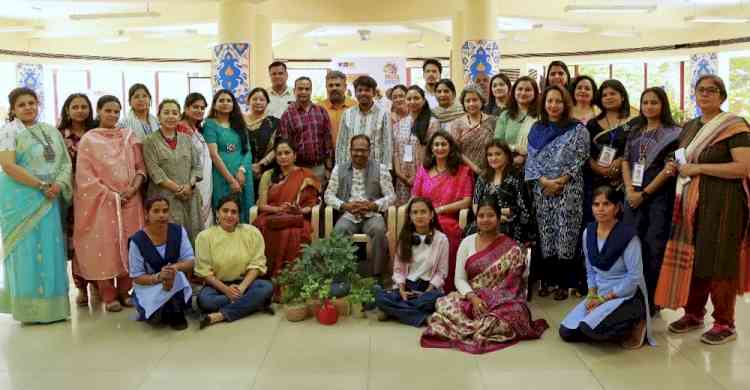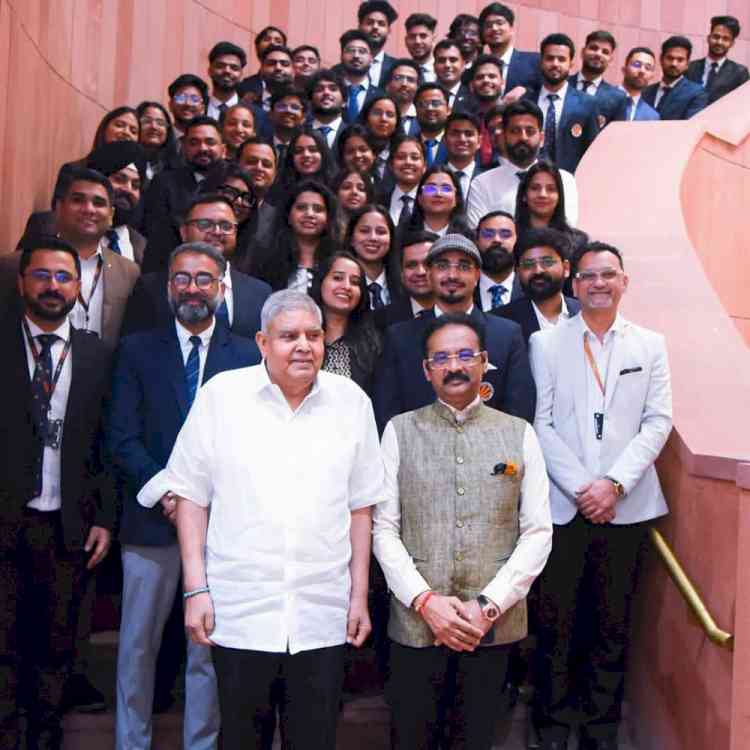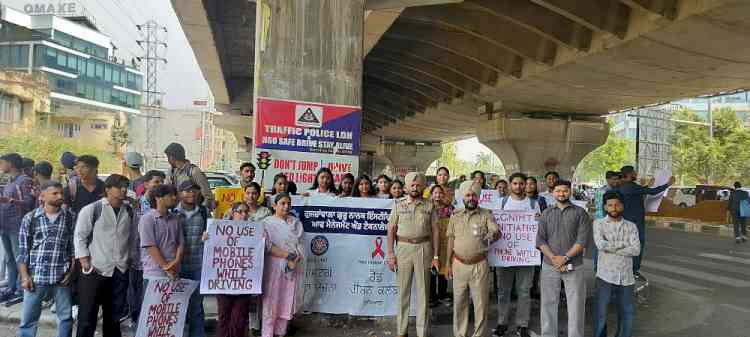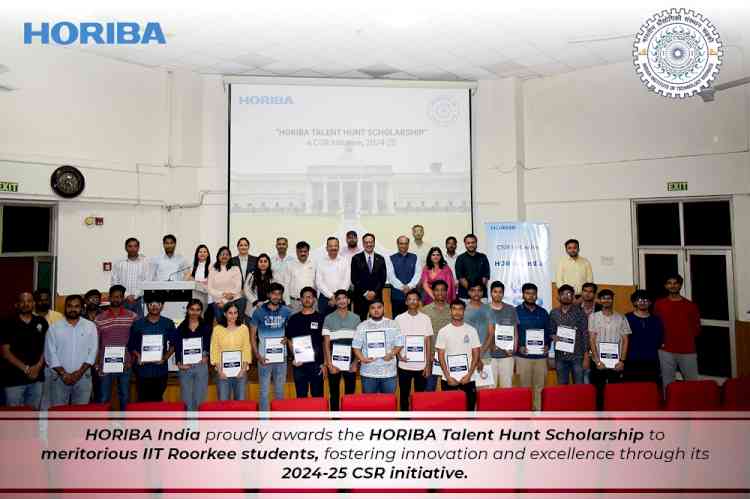Faculty Development Programme by World University of Design Equips School Art Teachers with NEP Potential
The World University of Design (WUD), in partnership with Sanskriti School in New Delhi, concluded a two-day Faculty Development Programme (FDP) on April 19-20. The FDP aimed to empower school art teachers with innovative pedagogical approaches aligned with the National Education Policy (NEP), recognizing the pivotal role of art and technology in school education.

Delhi-NCR, April 24, 2024: The World University of Design (WUD), in partnership with Sanskriti School in New Delhi, concluded a two-day Faculty Development Programme (FDP) on April 19-20. The FDP aimed to empower school art teachers with innovative pedagogical approaches aligned with the National Education Policy (NEP), recognizing the pivotal role of art and technology in school education.
Themed "Artful Minds," the FDP welcomed esteemed guest Padma Bhushan awardee Jatin Das, a well-known visual artist in Contemporary Indian Art, alongside various industry experts from creative domains. The programme featured insightful lectures on the latest industry trends, emphasizing the integration of holistic pedagogy with NEP principles. Notable experts included Ananda Moy Banerji, Lubna Sen, Prof. Sunil Kumar, and Supriya Consul who delivered enlightening sessions under the theme at Sanskriti School.
The FDP aimed to enhance art education quality through key objectives. It sought to recognize art's global and Indian importance, elevate school-level teaching skills, explore education's socio-economic/cultural links, acknowledge art teachers' diverse roles, and pioneer innovative teaching techniques to foster creativity and student engagement.
Over 25 school arts teachers actively participated in the programme, engaging in hands-on activities and discussions aimed at enhancing the quality of art education. Through the FDP, participants were introduced to various mechanisms such as Innovative Pedagogical Approaches, Holistic Development, Integration of Technology and Design, and Advocacy for the importance of art education.
Addressing the significance of art education, Prof. (Dr.) Sanjay Gupta, Vice Chancellor of WUD, Sonipat, remarked, "As Vice Chancellor of WUD, I believe that art education is not just about teaching techniques; it's about igniting creativity, nurturing expression, and empowering individuals to shape a brighter, more beautiful world. Through 'Artful Minds,' we unleash the transformative power of education, inspiring educators to champion innovation, cultivate talent, and redefine the very essence of possibility in every stroke of the brush, every click of the camera, and every beat of the heart."
"Art in school fosters creativity and imagination, essential skills for problem-solving and innovation in the modern world. It cultivates empathy and cultural awareness by exposing students to diverse perspectives. Integrating Art into Education enhances holistic learning, nurturing well-rounded individuals capable of thriving in both academic and personal spheres. Recognizing this, NEP has introduced Art Education as an integral part of school curriculum. This workshop will benefit the educators by enlightening them about the various aspects of integration of Art with other subjects and the subject Art as a career option for the students,’’ highlighted Richa Sharma Agnihotri, Principal of Sanskriti School, New Delhi.
Curator of the workshop, Prof. Rajan Shripad Fulari, Dean of the School of Visual Arts, WUD, emphasized the collaborative effort to shape the future of education through artful integration. "Together, let us illuminate the path towards holistic development and inspire the next generation of innovators," he stated.
The FDP, crafted with a holistic approach in alignment with NEP 2020 objectives, placed a unique emphasis on the promotion of Craft and Traditional Art of India. Its core objectives were to enhance pedagogical skills, empower educators, develop innovative curriculum models, engage with policymakers and stakeholders, foster networking opportunities, and ultimately contribute to the holistic development of students and the broader goals of Vikshit Bharat.
Prof. Ananda Moy Banerji captivated the audience with insightful references to 'The Little Prince,' delving into the realm of a child's world and its profound implications. Supriya Consul sparked inspiration by highlighting the importance of art education beyond the classroom, emphasizing the power of everyday experiences and the fusion of fine arts with traditional crafts. Prof. Sunil Kumar took the students the professors on a historical journey, exploring the genesis of the NEP and its evolution, highlighting its significance in promoting creativity and cultural understanding. Lubna Sen illuminated the modern landscape of art education, emphasizing its crucial role in shaping individuals for the complexities of contemporary society.


 City Air News
City Air News 








